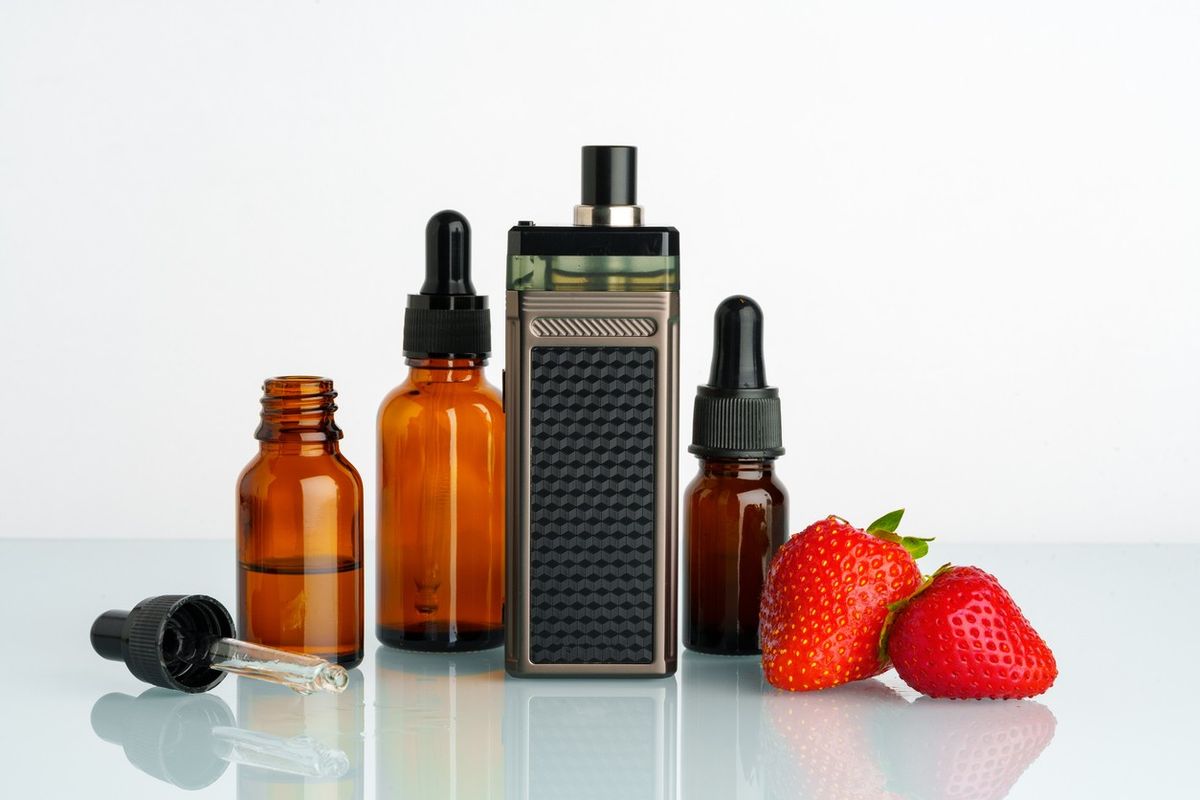A new study conducted by researchers at the Royal College of Surgeons in Ireland (RCSI) has unveiled concerning insights into the potential health hazards associated with flavoured vaping products.
Published in Scientific Reports, the study sheds light on the potentially harmful substances that are produced when e-liquids in vaping devices are heated for inhalation.
Using artificial intelligence (AI) simulations, the research team analysed the effects of heating e-liquid flavour chemicals commonly found in nicotine vapes.
They included 180 known e-liquid flavour chemicals, predicting the new compounds formed when these substances are heated within a vaping device immediately prior to inhalation. The results revealed the formation of numerous hazardous chemicals, including volatile carbonyls (VCs), known to pose health risks. These hazardous compounds were particularly prevalent in popular fruit, candy, and dessert-flavored products.
Lead author Professor Donal O’Shea, Professor of Chemistry and Head of RCSI’s Department of Chemistry, said the findings are very concerning.
“We wanted to understand, before it’s too late, the likely impact flavoured vapes are having on the health of the growing number of vapers. Our findings indicate a significantly different profile of chemical hazards compared to what we are familiar with from traditional tobacco smoking,” O’Shea said.
“It is plausible that we are on the cusp of a new wave of chronic diseases that will emerge 15 to 20 years from now due to these exposures. We hope this research will help people make more informed choices and contribute to the conversation on the potential long-term health risks and the regulation of vaping, which this research suggests should be comprehensive.”
The study also highlighted the complexities introduced by the vast array of flavours available in vaping products, with 180 different chemicals blended in various amounts. These chemicals, primarily sourced from the food industry with a good safety record for specific uses, were never intended to be heated to high temperatures for inhalation.
Moreover, the variability in vaping devices, often user-customised, adds to the unpredictability of potential health risks. This variability underscores the need for further research, utilising the AI framework established in this study, to develop risk reports for individual flavors, thereby informing public health policy decisions.
In response to the study, expert reactions were mixed.
Professor Jacob George of the University of Dundee praised the study as an early step in identifying potential risks but cautioned that further research is needed.
“There are close to 40,000 different flavours in the market worldwide today and making sense of their effects will require a combination of techniques including automated mapping algorithms and creation of neural networks such as this,” he said.
“While this study cannot give us definitive answers of the risks of flavoured vapes on human health, this study may be a helpful early step to identifying signals that could then lead to further, more in depth research into heat-induced breakdown of chemicals used in flavourings.”
However, Dr. Marina Murphy, scientific adviser to the UKVIA, raised concerns about over-reliance on AI in scientific research and emphasised the need to focus on solutions rather than problems.
“Only this month, an article in the highly prestigious journal Nature warned against the ‘illusions of understanding’ created when researchers depend on AI to do more, while understanding less,” she said.
“The effect of overheating e-liquids has been studied extensively. This can lead to the production of carbonyls, for example, but these compounds make the vapour so caustic as to be un-inhalable. Newer e-cigarettes devices are designed with built-in temperature control systems,” she added.
While she welcomed thorough toxicological risk assessment of e-liquids, Dr Murphy noted that “producing scary headlines” that could deter smokers from switching to vapes or prompt vapers return to smoking, is not helpful.
“Vaping has proven to be the most popular quit aid, and we need to focus less on problems and more on solutions to ensure that vapers continue to get the flavours they need to successfully quit cigarettes in the safest way possible,” she said.


